Installation and manual - VenoMKO/RealEditor GitHub Wiki
Installation
1. Download
You can get the latest version in the Releases section.
2. Unzip
Extract the Real Editor to any location.
3. Start
Open the extracted folder and start Real Editor.exe
4. Set Tera folder
In the Settings window, press Browse... and navigate to the S1Game folder of your client.
Example path:
D:\Games\Gameforge\Tera\Client\S1GameIf you want to use Real Editor with a 32-bit client(e.g., 92.04), use itsS1Gamefolded instead, or turn on the Use built-in 32-bit S1Game folder checkbox.
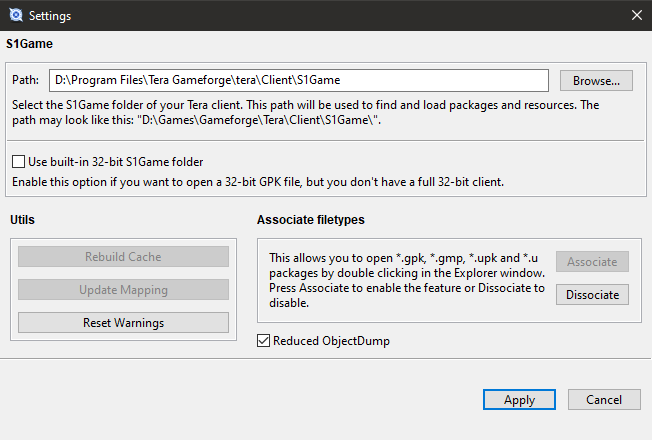
5. Associate GPK file format (optional)
This allows you to open GPK files from Windows File Explorer by double-clicking them. Press the Associate button to enable this feature or skip this step. Skip this step if you have an error.
6. Save settings
Press Apply to save settings and continue.
Welcome window
You can use this window to quickly open recent GPK files, or open GPK files by typing their names or from a hard drive.
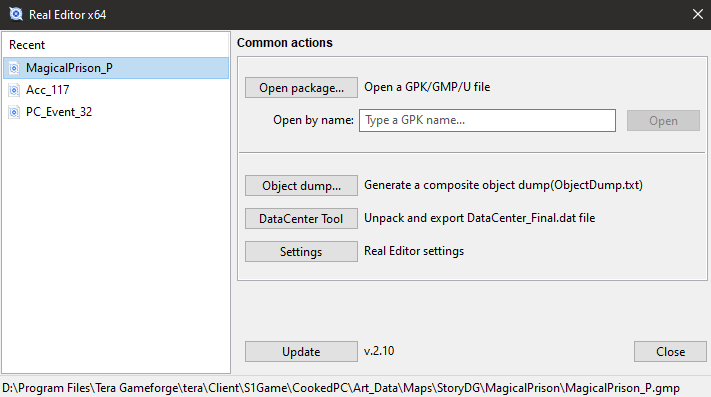
Manual
The app works in a document-based manner, where each window represents a different GPK file(package).
You can open packages via File -> Open... or by clicking a file in the Explorer window.
Please, note that some packages in the CookedPC folder have weird names, e.g., 6e7f2d00_98. These packages are called Composite, and you can't edit them directly. To learn how to create mods scroll down to the Wiki.
Any package has a table of contents that is shown on the left side of a window.
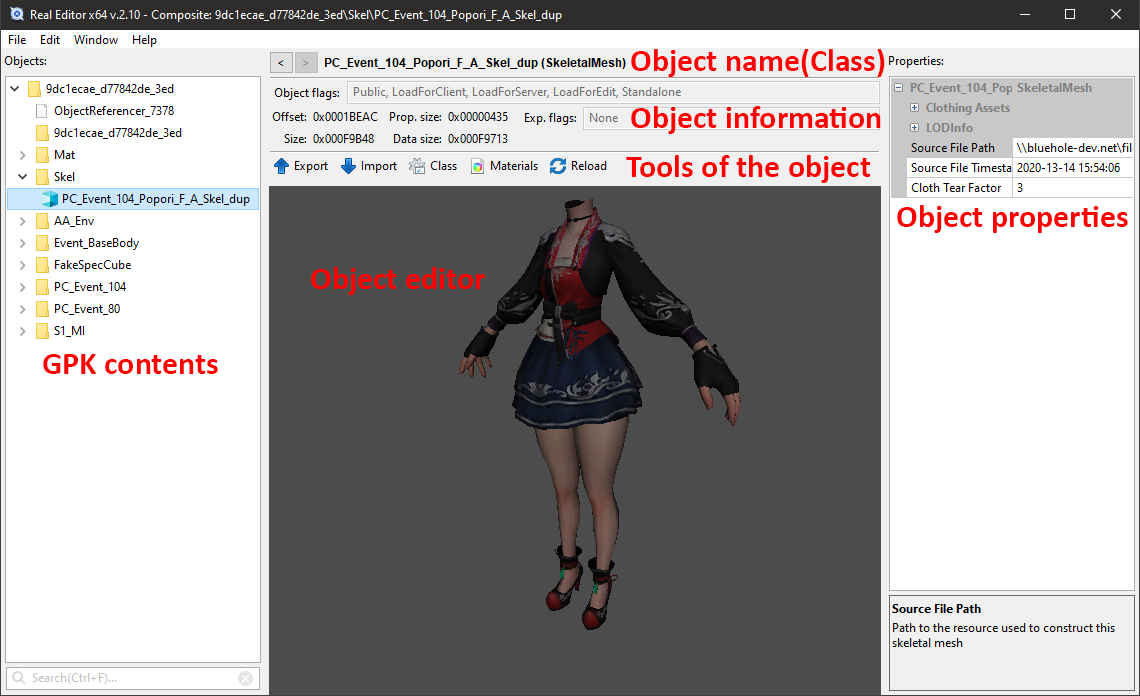
On the right side of the window, there is a properties list. It contains various attributes related to the selected object. Some properties have tooltips and descriptions. RE handles properties automatically, but if you need to change something, keep in mind that some properties only represent a state(e.g., changing texture format property won't change the actual texture data). For example, you can change materials emissive color, translucency, or change texture maps.
Object properties
Some objects have references to other objects(e.g., materials(shaders) have references to textures). You can view and edit object properties by clicking on the properties text field and pressing the ... button.
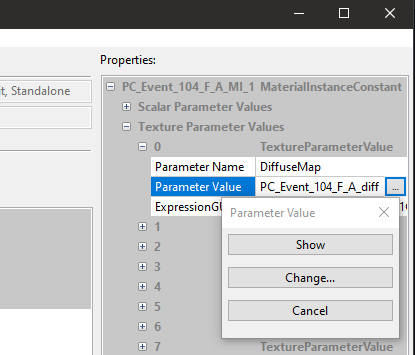
RawData properties
Some types of objects store object data as a RawData property. You can export and import this object data by clicking the properties text field and pressing the ... button.
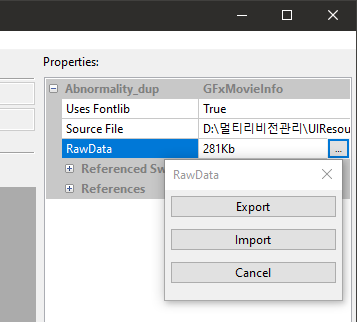
Most common object classes:
| Icon | Class | Description |
|---|---|---|
 |
Package | Simple folder |
 |
Texture2D | Texture/Image object |
 |
TextureCube | Array of textures used for reflections |
 |
ObjectRedirector | Alias/Shortcut to an object |
 |
StaticMesh | Static 3D model (e.g., weapon) |
 |
SkeletalMesh | 3D model capable of vertex animations(e.g., costume) |
 |
Material | Graph describing a shader program |
 |
MaterialInstanceConstant | Copy of a Material with custom parameters |
 |
AnimSet | Set of skeletal mesh animations that share the same skeleton |
 |
AnimSequence | Skeletal mesh animation. Child of an AnimSet |
 |
SoundNodeWave | Sound/Music object |
 |
Level | Map, level or dungeon |
 |
StreamingLevel | Dynamicaly loaded map, level or dungeon |
Wiki
Create mods
Export assets
- Export a 3D model
- Export animations
- Export DataCenter.dat
- Export Levels, Maps, Dungeons to Unreal Engine 4
- Export/Import sounds and music
- Export SpeedTrees